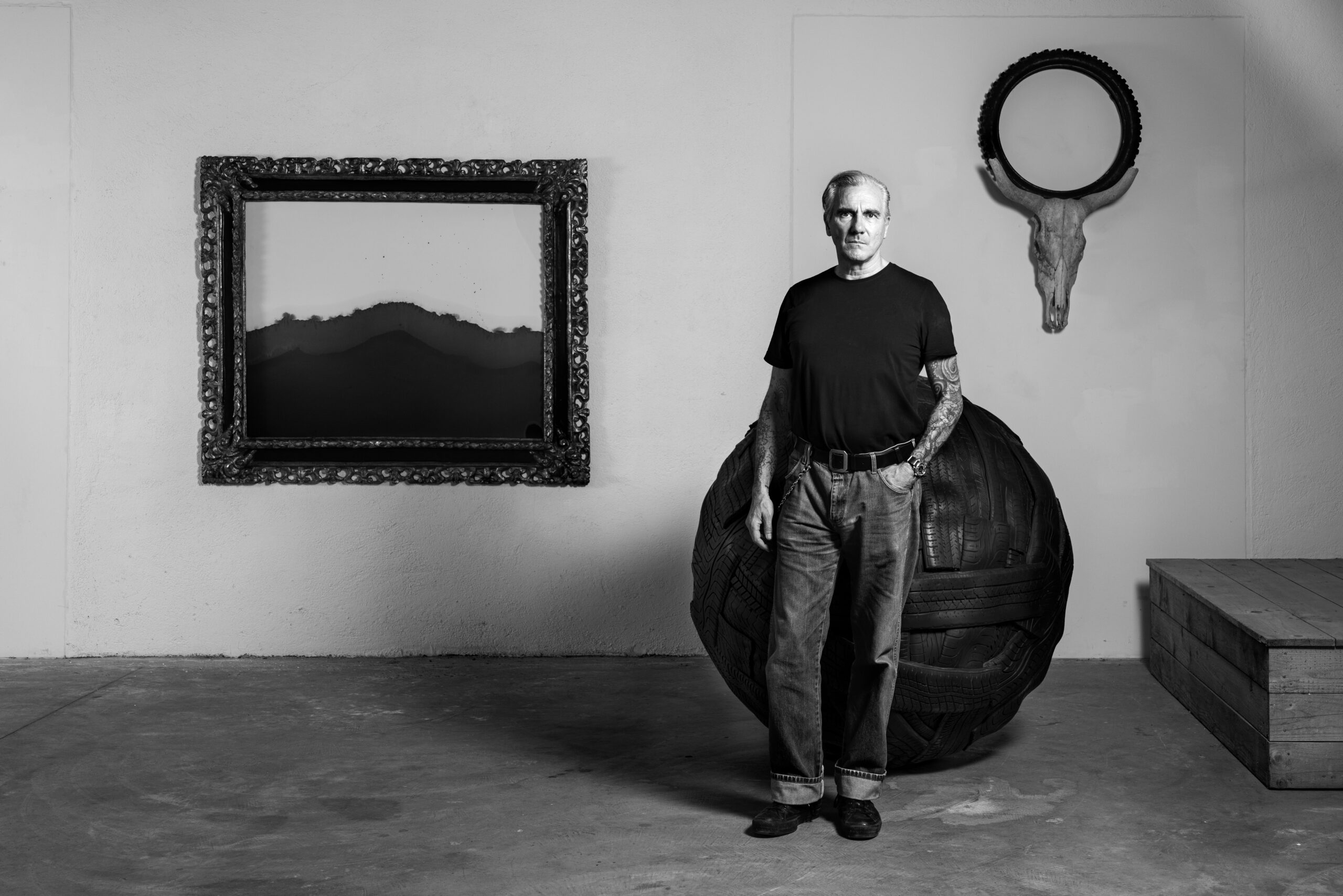PAOLO CANEVARI

Since his early years, Canevari has explored the relationship between historical identity and the present time, developing a language that combines the rawness of discarded materials with a poetic and conceptual tension. Burnt engine oil, rubber from tires, and industrial residues become symbols of a world torn apart by conflict and polluted by ideological and ecological crises. The choice of such materials—images of modernity and its utopian progress—reveals an urgency to redeem the decline of our age. The black of oil and rubber, a recurring motif in Canevari’s poetics, does not merely evoke a state of crisis; in its absoluteness, it becomes a meditative space.


